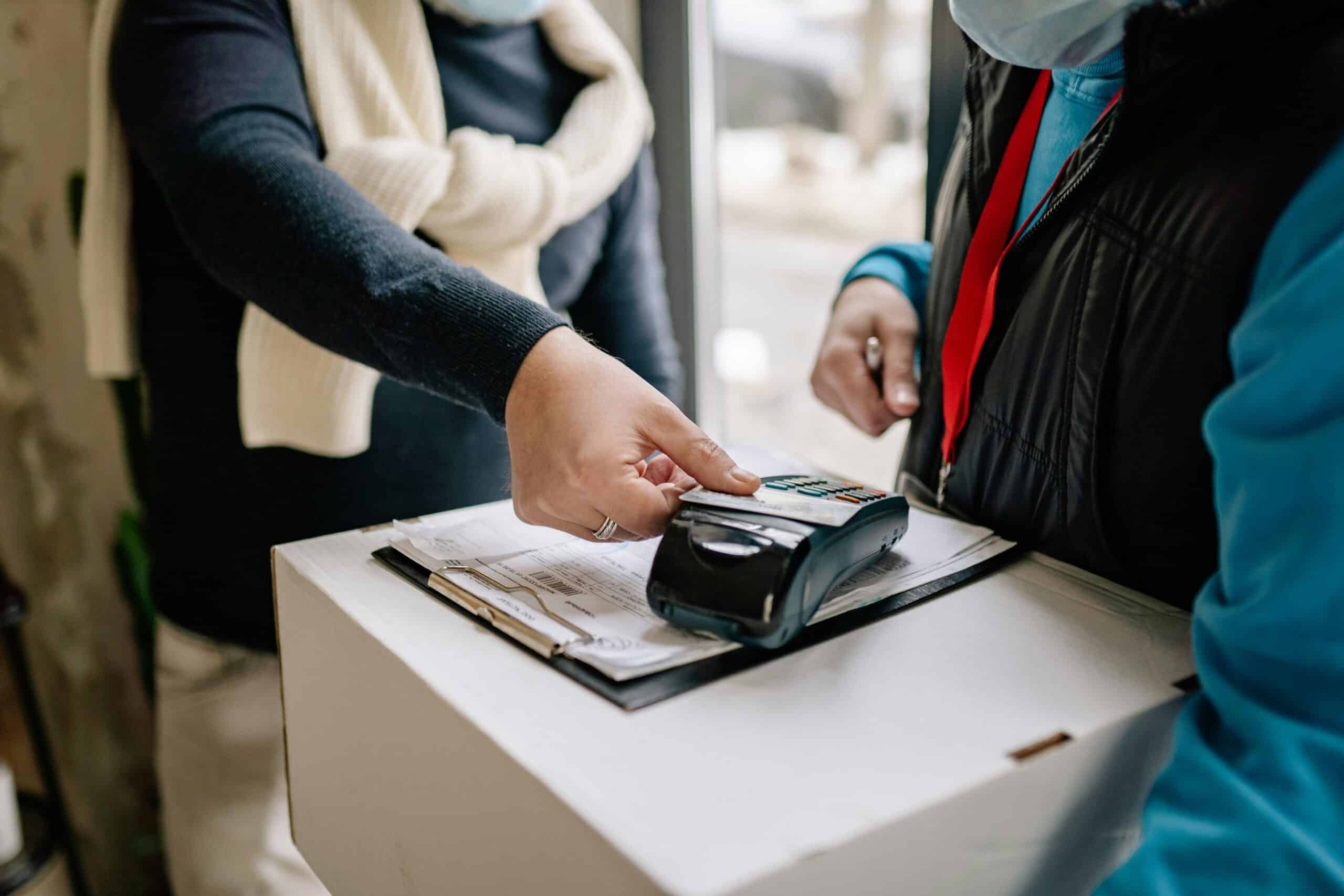In today’s digital landscape, businesses must be able to process electronic payments efficiently. However, for certain industries, securing a standard merchant account can be difficult due to their classification as “high-risk”. Yet even for these businesses, a high-risk merchant account is essential to process payments without disruption.
In this blog, we’ll cover everything you need to know about high-risk merchant accounts, their benefits, and why Payment Nerds is a trusted partner in navigating the complexities of high-risk payment processing.
Learn more about how Payment Nerds can help secure your high-risk merchant account today.
What is a High-Risk Merchant Account?
A high-risk merchant account is a type of payment processing account specifically designed for businesses deemed high-risk by financial institutions and payment processors.
The term “high-risk” refers to the perceived likelihood of certain businesses experiencing a higher rate of chargebacks, fraud, or regulatory challenges.
Standard merchant accounts, on the other hand, are for businesses with lower risk factors, such as retailers with low chargeback rates and stable transaction volumes.
Businesses may be labeled high-risk for various reasons, such as operating in a heavily regulated industry or having a history of chargebacks. This designation often leads to higher fees, stricter contract terms, and the requirement of additional safeguards, like rolling reserves or delayed settlement periods.
Why You Might Need a High-Risk Merchant Account
Certain business types require a high-risk merchant account because they face unique challenges that traditional payment processors may not be equipped to handle. For example, companies dealing with higher-than-average chargebacks or those selling products that attract regulatory scrutiny often find themselves in need of specialized payment solutions.
Imagine an eCommerce business owner, Carol, who struggles with frequent chargebacks due to product disputes. Traditional payment processors have either denied her application or shut down her account. A high-risk merchant account would allow Carol to continue accepting payments without constant disruptions.
Then there’s Peter, who runs a successful CBD business. Despite the industry’s growth, many payment processors are reluctant to offer services due to legal and regulatory uncertainties. Peter’s business, although legitimate, requires a high-risk merchant account to keep payments flowing smoothly and avoid interruptions.
Who Needs a High-Risk Merchant Account?
Many industries are automatically considered high-risk by financial institutions due to the nature of their products or services. Some of the most common high-risk industries include:
- CBD and Cannabis: Due to ongoing legal restrictions and varying state regulations, businesses in the cannabis and CBD industries often face significant hurdles when setting up merchant accounts.
- Online Gambling: With the potential for fraud, high chargebacks, and stringent regulations, online gambling businesses are seen as high-risk.
- Adult Entertainment: This industry is notorious for high chargeback rates and legal concerns, leading payment processors to view it as high-risk.
- Travel Agencies: Businesses in this sector face higher risks due to frequent cancellations and chargebacks related to travel disruptions.
- Telemarketing: High chargeback rates and compliance issues put telemarketers in the high-risk category.
- Travel and Hospitality: Frequent cancellations and refund requests lead to higher chargeback rates in this industry.
- Nutraceuticals: Strict FDA regulations and customer complaints contribute to the high-risk status of nutraceutical businesses.
- Subscription Services: Subscription models often face chargeback issues, particularly when customers dispute recurring charges.
How High-Risk Merchant Accounts Work
A high-risk merchant account operates similarly to a standard merchant account, with key differences in terms of fees, approval times, and reserve requirements. The application process is typically more detailed, as payment processors must assess the level of risk involved with the business.
- Application Process: High-risk merchants undergo a more rigorous application process, which requires documentation such as business financials, processing history, and compliance information.
- Underwriting Considerations: Payment processors evaluate factors such as the business’s industry, chargeback history, and transaction volume during the underwriting process.
- Rolling Reserves and Fund-Holding Periods: Many high-risk merchants are subject to rolling reserves, where a percentage of transactions are held by the processor for a specific period to cover potential chargebacks.
- Higher Fees: Businesses classified as high-risk often pay higher processing fees to offset the risks associated with their transactions.
Why High-Risk Merchant Accounts are Necessary for Accepting Electronic Payments

Accepting electronic payments is crucial for modern businesses. In high-risk industries, a merchant account is necessary to process credit card, debit card, and online payments securely[1]. Without a high-risk merchant account, businesses may face payment disruptions or be unable to operate in a digital-first world.
Electronic payments also help expand high-risk businesses’ customer base and allow for faster transactions. Without access to a reliable payment processor, businesses risk losing out on sales and experiencing cash flow problems.
Start accepting secure payments today with Payment Nerds’ high-risk merchant services.
Benefits of a High-Risk Merchant Account
High-risk merchant accounts may have higher fees and stricter terms, but they offer significant advantages that can enhance a business’s ability to operate smoothly and grow. Let’s explore the key benefits of high-risk merchant accounts and how they positively impact businesses.
Access to a Broader Customer Base
One of the most valuable benefits of a high-risk merchant account is the ability to accept a wide variety of payment methods, particularly credit and debit cards. In today’s digital economy, customers expect to pay with these methods for convenience and security. If a business can’t offer flexible payment options, especially in high-risk industries like online gambling, CBD sales, or nutraceuticals, it could lose a significant portion of potential customers.
With a high-risk merchant account, businesses open their doors to a broader audience. This is particularly important for online and global businesses that need to accommodate different currencies and payment preferences. Many consumers are wary of alternatives like bank transfers or third-party processors, but they are more comfortable with trusted payment methods like Visa, Mastercard, and American Express. The broader the range of payment options, the easier it is for businesses to attract and retain customers — especially in competitive, high-risk markets where accessibility is key.
Improved Cash Flow
Another crucial benefit of a high-risk merchant account is maintaining smooth, uninterrupted cash flow. For businesses, especially in high-risk sectors, timely access to funds can be the difference between keeping operations running or facing financial shortfalls. High-risk merchant accounts ensure that businesses receive their payments quickly and reliably, even when dealing with large transaction volumes or international payments.
Without a secure payment processing system, businesses often face delays or even lost transactions, which can severely disrupt their cash flow. High-risk merchant accounts streamline the payment process, ensuring funds are deposited into the business’s account consistently. This helps businesses plan their finances more effectively, maintain liquidity, and invest in growth initiatives without worrying about payment interruptions.
Fraud Protection and Chargeback Mitigation Tools
High-risk businesses are more susceptible to fraud, disputes, and chargebacks compared to standard businesses, but high-risk merchant accounts come equipped with advanced fraud protection and chargeback mitigation tools to address these challenges. Many payment processors that specialize in high-risk industries offer technology designed to detect and prevent fraudulent transactions before they occur. For example, features like real-time transaction monitoring, multi-layer authentication, and encryption protocols help protect businesses from unauthorized or suspicious activity.
In addition to fraud protection, these accounts also offer robust chargeback management tools. High chargeback rates are one of the primary reasons businesses are classified as high-risk, and unchecked chargebacks can result in significant financial losses, processor penalties, or even account termination. High-risk merchant accounts help minimize the risk of chargebacks by implementing preventative measures such as chargeback alerts, dispute resolution mechanisms, and clear return policies. With these tools in place, businesses can effectively manage disputes, reduce the frequency of chargebacks, and maintain a healthier payment ecosystem.
Scalability
One of the most attractive features of high-risk merchant accounts is their ability to scale with the business. Many high-risk industries experience unpredictable fluctuations in transaction volume — whether it’s a travel agency dealing with seasonal spikes or an eCommerce platform managing flash sales and promotions. High-risk merchant accounts are built to handle these transaction surges without jeopardizing the business’s ability to process payments smoothly.
Unlike standard accounts, which may limit the number or size of transactions due to risk concerns, high-risk accounts are designed with the flexibility to accommodate growing businesses. This scalability is crucial for businesses looking to expand their operations, launch new product lines, or enter international markets. As the business grows, so do its payment processing needs, and a high-risk merchant account ensures that payment infrastructure remains robust enough to support that growth.
These benefits highlight why high-risk merchant accounts are not just a necessity but also a strategic advantage for businesses operating in challenging sectors. They provide the infrastructure and tools needed to manage risks, improve cash flow, and support scalable growth, helping businesses stay competitive and thrive in high-risk environments.

The Process for Setting Up a High-Risk Merchant Account
Setting up a high-risk merchant account involves several steps:
- Pre-qualification: Determine if your business qualifies as high-risk by assessing industry, chargeback history, and transaction volume.
- Application: Gather the necessary documentation, including business financials and processing history, for submission to the payment processor.
- Underwriting and Approval: Expect a thorough review by the payment processor, which may include an analysis of your business model and financial stability.
- Integration: Once approved, set up the payment gateway and integrate it with your website or eCommerce platform.
Payment Nerds assists with every step of this process, providing personalized support to ensure a seamless experience.
Why Are Some Businesses Considered High-Risk?
Payment processors categorize certain businesses as high-risk due to various factors that increase the likelihood of financial instability, fraud, or legal complications. High-risk businesses often face greater scrutiny and stricter terms when setting up merchant accounts.
Understanding the key factors that determine why a business is considered high-risk can help business owners navigate these challenges more effectively. Let’s explore the main reasons that some businesses are labeled as high-risk:
Industry Type
One of the primary reasons a business is classified as high-risk is its industry. Certain sectors are inherently more vulnerable to fraud, regulatory scrutiny, and fluctuating legal environments, which increases the risk for payment processors. Here are a few examples of industries frequently considered high-risk:
- CBD and Cannabis
- Online Gambling
- Adult Entertainment
- Nutraceuticals
- Telemarketing
- Travel and Hospitality
- Subscription Services
In these industries, regulatory uncertainty, combined with a high potential for customer disputes or legal complications, contributes to their high-risk status.
Transaction Volume
High transaction volume can also push a business into the high-risk category. Payment processors are cautious about businesses that handle large sums of money or conduct numerous transactions, especially if those transactions are of high value. The reasoning behind this is straightforward: the more transactions a business processes, the higher the likelihood that something could go wrong — whether that’s fraudulent activity, errors, or customer disputes.
For example, a travel agency might process large transactions for expensive vacation packages or airfare. If customers later cancel their trips or dispute the charges, the payment processor may be left dealing with chargebacks.
Additionally, businesses with seasonal spikes in transaction volume (e.g., holiday shopping for eCommerce or seasonal travel bookings) are scrutinized more closely. A sudden influx of transactions can be a red flag for fraud detection systems.
While high transaction volumes alone may not categorize a business as high-risk, when combined with other factors — such as frequent chargebacks or a risky industry type — they become a significant indicator of potential financial risk.
Chargeback Frequency
Chargebacks occur when customers dispute a charge on their credit or debit card and request a refund from their card issuer[2]. A high chargeback rate is one of the most common reasons businesses are labeled as high-risk. Chargebacks can occur for various reasons, including:
- Customers do not recognize the charge on their statements.
- Unmet expectations regarding the product or service.
- Fraudulent activity, such as stolen credit card information.
High chargeback rates hurt a business’s bottom line and put significant strain on payment processors, which are responsible for resolving these disputes. Payment processors face increased liability when a business has a history of chargebacks because they are often obligated to refund customers even if the dispute isn’t settled in favor of the business.
Industries such as subscription services, telemarketing, and online retail commonly experience high chargeback rates. For example, a subscription service might offer free trials that convert into paid subscriptions without explicit customer consent, leading to disputes. To mitigate the risks associated with chargebacks, payment processors charge higher fees, enforce rolling reserves, or deny standard merchant account approval altogether.
Regulatory Concerns
Businesses operating in tightly regulated industries often face higher levels of scrutiny from both government agencies and financial institutions. Industries such as cannabis, CBD, nutraceuticals, firearms, and travel are examples of sectors where the regulatory landscape is complex and constantly evolving.
For businesses in these industries, even a minor infraction or legal misstep could lead to costly fines, legal battles, or product recalls, all of which could negatively impact the financial institution supporting their payment processing.
Businesses are categorized as high-risk based on various factors, including industry type, transaction volume, chargeback frequency, and regulatory challenges[3]. For high-risk businesses, securing a reliable merchant account is essential for smooth payment processing and business continuity. Working with a payment processor that specializes in high-risk industries, like Payment Nerds, can help mitigate the challenges associated with operating in these sectors.
Challenges for High-Risk Merchant Accounts and the Businesses That Need Them
High-risk businesses face several challenges, including:
- Higher Fees and Transaction Costs: High-risk merchants typically pay more in processing fees due to the risk involved.
- Account Freezes or Fund-Holding Periods: Payment processors may place holds on funds or freeze accounts if they suspect fraudulent activity.
- Limited Provider Options: Not all payment processors are willing to work with high-risk businesses, limiting their choices.
Solutions include partnering with providers like Payment Nerds, who specialize in high-risk accounts and offer reliable services to mitigate these challenges.
How to Choose a High-Risk Merchant Account Service Provider
When selecting a high-risk merchant account provider, consider the following:
- Experience in High-Risk Industries: Providers with experience understand the unique challenges of high-risk businesses.
- Customer Support Availability: Around-the-clock support is crucial for addressing any account issues promptly.
- Security and Fraud Protection Tools: Ensure the provider offers advanced fraud prevention tools.
- Fee Transparency: Look for providers that are upfront about fees.
Contact Payment Nerds for personalized support and secure high-risk merchant services.

Fees Associated with High-Risk Merchant Accounts
High-risk merchant accounts often come with additional fees:
- Processing Fees: Typically higher than standard merchant accounts.
- Account Setup Fees: Some providers charge for setting up the account.
- Chargeback Fees: Additional fees for handling chargebacks, which are more frequent in high-risk industries.
- Rolling Reserves: A percentage of sales is held in reserve by the payment processor to cover potential chargebacks.
- Monthly Minimums and Annual Fees: High-risk merchants often face minimum monthly fees or annual charges.
Types of High-Risk Merchant Accounts
There are several types of high-risk merchant accounts, depending on the business model:
- Ecommerce Merchant Accounts: Designed for online businesses selling high-risk products.
- Subscription-Based Accounts: These are for businesses offering recurring billing models, often facing chargeback challenges.
- International Merchant Accounts: For businesses operating across borders and dealing with multiple currencies.
- POS Systems for High-Risk Industries: In-person payment solutions for high-risk businesses with physical locations.
Conclusion
Securing a high-risk merchant account is essential for businesses operating in industries deemed high-risk. With the right provider, you can continue to process payments securely, manage chargebacks, and ensure smooth cash flow. Payment Nerds offers comprehensive solutions tailored to your business needs, providing the support, security, and scalability necessary for long-term success.
Get started with secure payment processing today — reach out to Payment Nerds and simplify your high-risk payment journey.
Sources
- “Credit Card Processing in High-Risk Industries”, Business.com, https://www.business.com/articles/credit-card-processing-high-risk-business/
- “What is a Chargeback?”, Mastercard, https://b2b.mastercard.com/news-and-insights/blog/what-is-a-chargeback/
- “In 2025 Security And Risk Pros Will Brace For Regulations”, Forbes, https://www.forbes.com/sites/forrester/2024/10/23/in-2025-security-and-risk-pros-will-brace-for-regulations/











